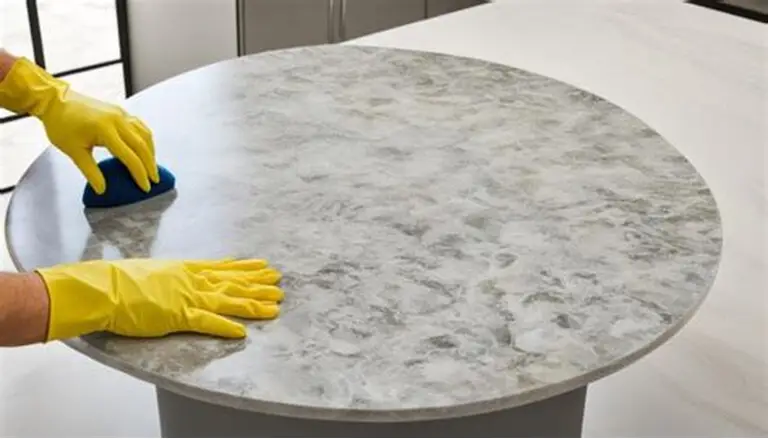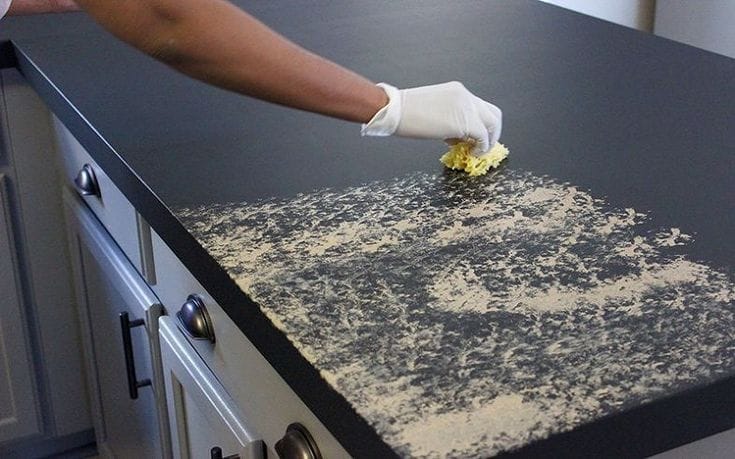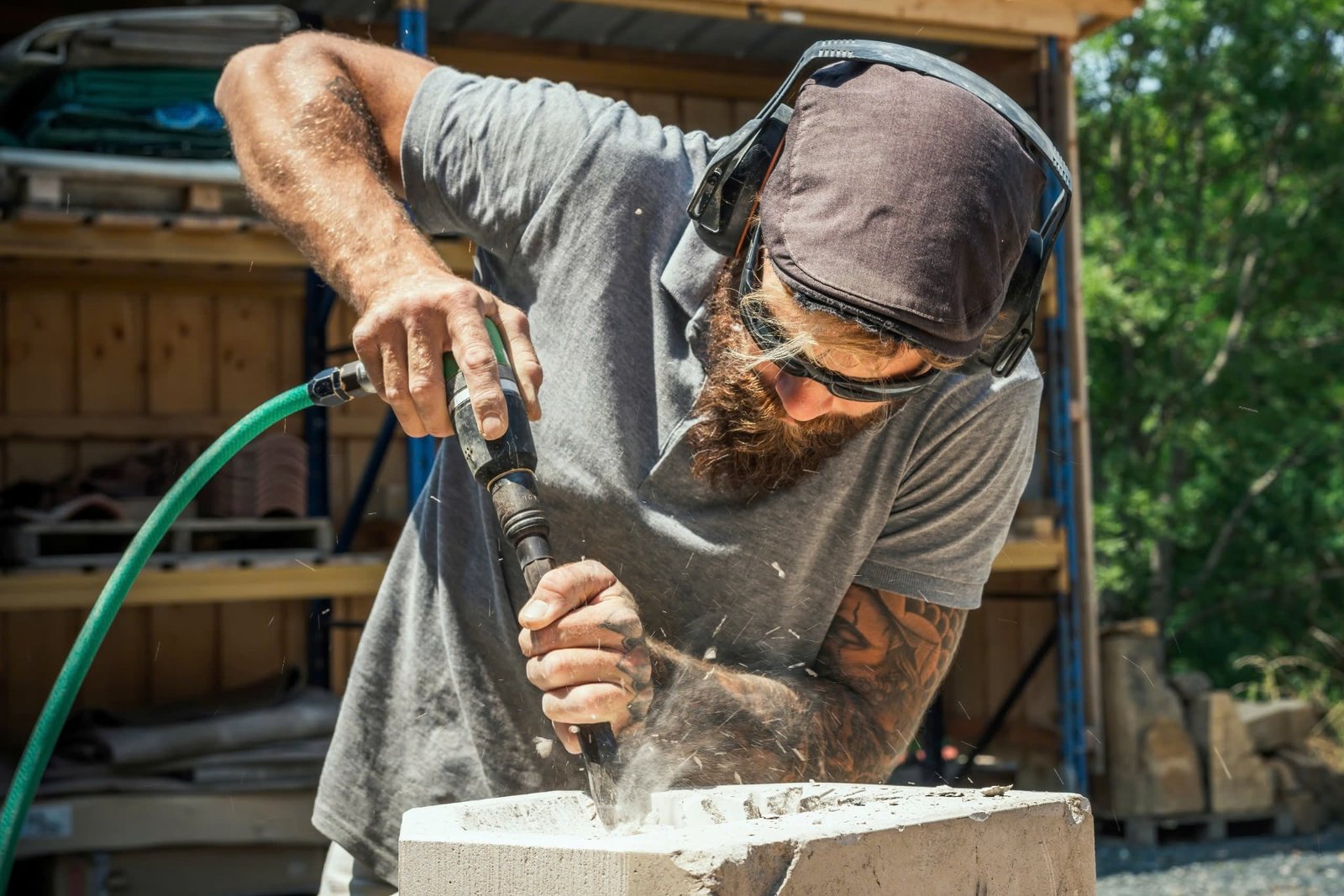
Granite countertops remain one of the most elegant and durable surfaces for modern homes
Granite countertops remain one of the most elegant and durable surfaces for modern homes. Whether used in granite kitchen countertops, granite bathroom countertops, or even granite countertops for outdoor kitchens, they’re a timeless option praised for their natural beauty and resilience. But to keep granite looking polished and performing at its best, resealing is essential.
In this guide, we’ll explore whether you need to reseal your granite countertops, how to tell when it’s time, the steps to do it properly, and how sealing contributes to long-term maintenance and aesthetic appeal.

What Does Sealing Granite Countertops Do?
Granite is a natural stone, which means it’s porous and can absorb liquids if left unsealed. When properly sealed, polished granite countertops resist stains, moisture, oils, and bacteria. This is crucial in high-use areas like kitchens and bathrooms, where water stains, calcium buildup, or oil residue can damage the stone.
Related: How to Seal Leathered and Black Granite Countertops

Do You Need to Reseal Granite Countertops?
The short answer is: Yes, if you want to preserve their integrity and appearance. Over time, even the best sealer wears off due to cleaning, daily use, and exposure to acidic or oily substances. Granite bathroom countertops may last longer between sealing sessions, while granite kitchen countertops typically require more frequent maintenance.
Unsealed granite can lead to:
- Stubborn stains
- Bacterial contamination
- Dull or discolored finishes
- Water etching and dark spots
Signs Your Granite Countertops Need Resealing
1. The Water Test
Pour a small amount of water on the countertop and wait 15 minutes. If it darkens or absorbs into the stone, it’s time to reseal.
2. Stains or Residue Appear Easily
If you notice that water, oil, or wine leaves behind marks or discoloration, your sealant is likely failing.
3. Loss of Shine
While honed granite countertops have a matte finish, polished granite countertops should maintain a glossy look. Dullness can indicate worn-out sealant.
How Often Should You Reseal Granite?
There is no one-size-fits-all answer. Frequency depends on color, usage, and granite type:
- Light granite slabs for countertops: Every 6–12 months
- Dark granite countertops: Every 2–3 years
- High-traffic surfaces: Annually or as needed
Curious about protection options? Check out:
What Can You Use on Granite Countertops to Protect Them?
Steps to Reseal Granite Countertops
1. Clean the Surface Thoroughly
Use a pH-balanced granite cleaner to remove dirt, grease, and residue.
2. Choose the Right Sealer
Opt for penetrating sealers designed for natural stone. Avoid products with harsh chemicals or waxes.
Want to know more? What Are Quartz Countertops?
3. Apply the Sealer Evenly
Using a clean cloth or sponge, apply the sealer in circular motions. Ensure full surface coverage.
4. Let It Sit and Penetrate
Wait the amount of time specified on the product (usually 15–30 minutes). Don’t let the product dry completely on the surface.
5. Wipe Off Excess and Buff
Use a microfiber cloth to buff the surface, removing residue. This prevents streaks and haze.
6. Let It Cure
Most sealers require 24–48 hours to fully cure before regular use.
More info: How Long to Wait After Sealing Granite Countertops?
Benefits of Resealing Granite Countertops
- Enhanced stain resistance
- Longer lifespan
- Better hygiene
- Preserved shine
- Reduced long-term maintenance costs
For households with affordable granite countertops for modern kitchens or high-end custom granite countertops, resealing is an easy way to protect your investment.
What Happens If You Don’t Reseal Granite?
Neglecting to reseal granite leads to:
- Stains from oil, wine, or acidic foods
- Bacteria growth in unsealed pores
- Water damage and mineral buildup
- Surface degradation over time
Must-read: What Happens If You Don’t Seal Granite Countertops?
Granite vs Quartz Countertops: Do Both Need Sealing?
Unlike granite, quartz countertops are non-porous and don’t require sealing.
Explore more:
Granite Maintenance Tips After Resealing
- Use gentle cleaners; avoid bleach, vinegar, or ammonia
- Clean spills immediately
- Use coasters and cutting boards
- Reapply sealer on schedule
- Avoid abrasive pads
Recommended: Lifting Equipment
Conclusion: Protecting the Beauty and Longevity of Granite
So, do you need to reseal granite countertops? Absolutely—if you want to extend their lifespan, maintain their shine, and prevent damage. Granite is an investment that pays off with proper care.
If you’re searching for granite countertops near me, don’t forget to ask about sealing services and recommendations for long-term maintenance.

